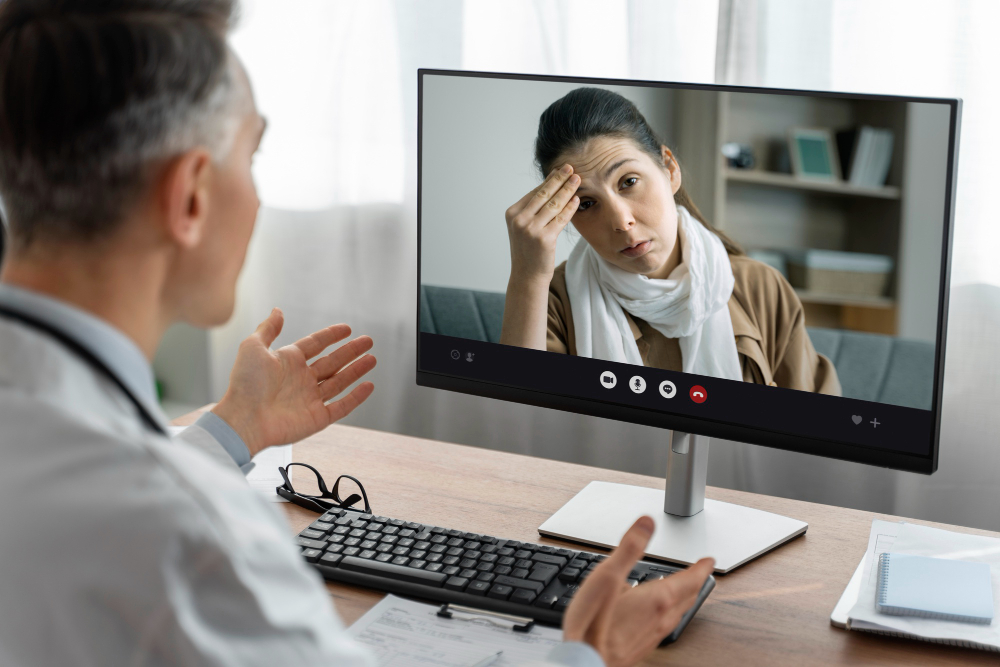In a world where access to quality healthcare is not always readily available, virtual consultations have emerged as a powerful tool in bridging the gap between patients and healthcare providers. This innovative approach to healthcare delivery has revolutionized the way people receive medical attention, offering convenience, efficiency, and expanded access to services. Let’s delve into the transformative impact of virtual consultations and how they are unlocking healthcare access for millions worldwide.
The Rise of Virtual Consultations
Convenience at Your Fingertips
Virtual consultations, also known as telemedicine or telehealth, leverage digital technology to connect patients with healthcare professionals remotely. Through video calls, phone calls, or secure messaging platforms, individuals can consult with doctors, specialists, and other healthcare providers from the comfort of their homes or any location with internet access. This convenience eliminates the need for travel, reduces waiting times, and allows patients to receive timely medical advice without disrupting their daily routines.
Breaking Down Geographic Barriers
One of the most significant advantages of virtual consultations is their ability to transcend geographical barriers. In rural or underserved areas where access to healthcare facilities is limited, virtual consultations enable patients to connect with specialists located miles away. This geographical flexibility ensures that individuals living in remote regions or areas with a shortage of healthcare professionals can still receive expert medical guidance and treatment options without the need for extensive travel.
Enhancing Accessibility for Vulnerable Populations
Virtual consultations play a crucial role in enhancing accessibility for vulnerable populations, including the elderly, individuals with disabilities, and those with chronic conditions. For these groups, visiting a traditional healthcare facility can be challenging due to mobility issues or transportation constraints. By offering virtual consultations, healthcare providers can reach these populations more effectively, ensuring they receive the care they need in a manner that is convenient and comfortable for them.
The Impact on Healthcare Delivery
Improving Healthcare Efficiency
Virtual consultations streamline the healthcare delivery process by reducing administrative burdens, minimizing appointment no-shows, and optimizing resource allocation. With virtual consultations, healthcare providers can conduct more efficient consultations, leading to shorter wait times for patients and increased capacity to see a larger number of individuals. This improved efficiency benefits both patients and healthcare providers, allowing for better utilization of time and resources.
Empowering Patient Engagement
Virtual consultations empower patients to take a more proactive role in managing their health. Through remote monitoring devices and digital health platforms, individuals can track their vital signs, symptoms, and medication adherence, providing valuable data for healthcare providers during virtual consultations. This increased engagement fosters a collaborative relationship between patients and providers, leading to better health outcomes and adherence to treatment plans.
Redefining Continuity of Care
Virtual consultations facilitate continuity of care by enabling seamless communication and follow-up between patients and healthcare providers. Whether it’s a routine check-up, medication adjustment, or post-operative care, virtual consultations allow for ongoing monitoring and support without the need for frequent in-person visits. This continuity of care ensures that patients receive consistent and personalized attention, leading to improved health management and outcomes over time.
Conclusion
Virtual consultations represent a paradigm shift in healthcare delivery, offering unparalleled convenience, accessibility, and efficiency for patients and providers alike. By harnessing the power of digital technology, virtual consultations are unlocking healthcare access for millions of individuals worldwide, breaking down barriers to quality care and redefining the patient-provider relationship. As we continue to embrace the potential of virtual consultations, we can create a healthcare system that is more inclusive, responsive, and sustainable for generations to come.







